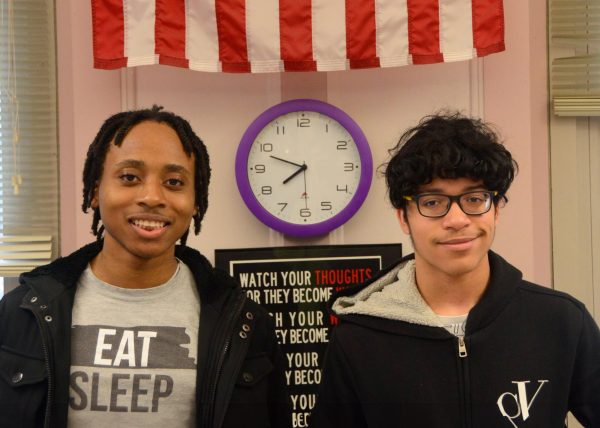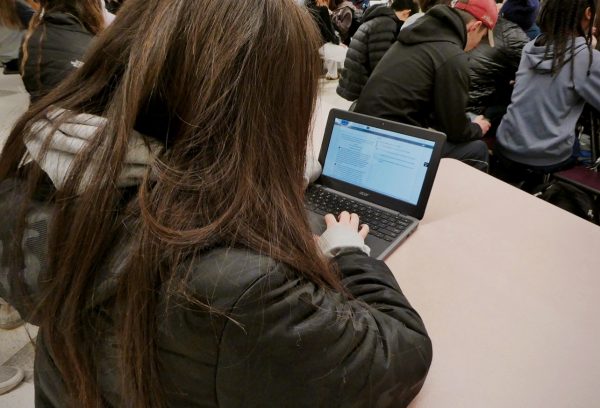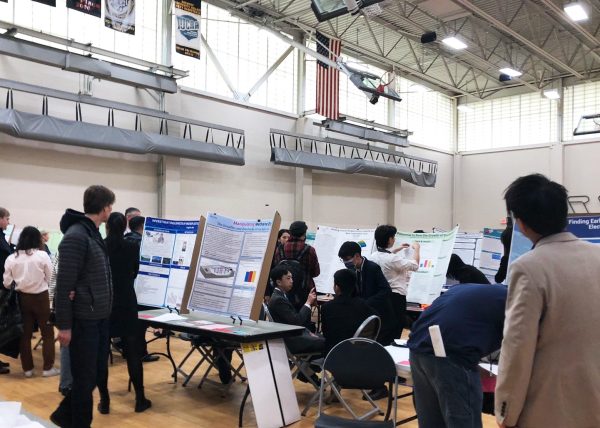Senior Capstone Caps off a Successful Year
Tiffany Dang (I):
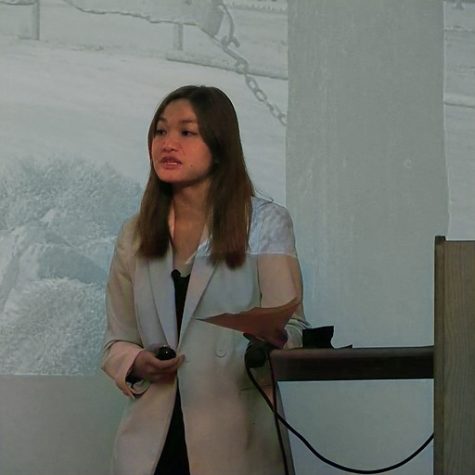
Tiffany Dang (I) based her research on the gardens of Asian American families, especially recent immigrants, and the rich history behind them. Like many other presenters, her topic of choice was influenced by her childhood and family experiences. Describing the inspiration behind her selected theme, Dang notes, “My mom has this habit of, when we go on walks together at night, we’ll stop by a neighbor’s tree and then she’ll take fruits from their tree.” She’d witnessed this practice with many Vietnamese families and decided to dive deeper into the relationship between Asian immigrants and growing fruits and vegetables. To present her findings, she created a unique medium: a children’s book. Dang says that the focus on art in her Capstone allowed her to balance her schedule with academic work. She added that the project was “an opportunity for [her] to combine [her] interest in art and also [her] cultural identity.”
Willa Davis (I):
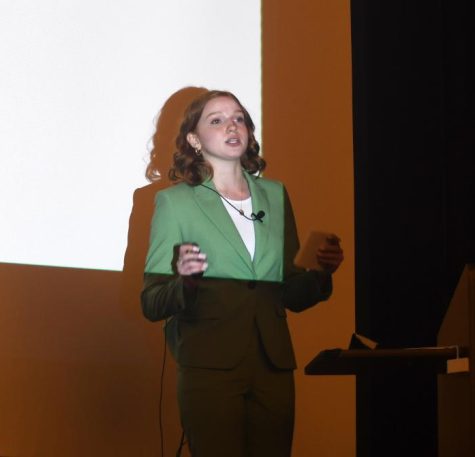
Willa Davis (I) devoted her Senior Capstone project to exploring the gender gap in STEM and the adversities women face when pursuing STEM-related careers. As someone who previously struggled with science, Davis states, “I had a huge passion for STEM when I was younger that kind of burned out after taking more advanced science courses like AP Biology.” Through her Capstone, she wanted to find out if other girls shared similar experiences in their education. Davis went beyond that, however, and also analyzed the lack of opportunities available to women who feel restricted in their career choices based on their economic status, home environment or educational history. She adds, “Lower-income families are much less likely to have the resources to support their child in STEM and attend a school that is funded enough to provide students with labs or after-school science programs.” As the culmination of her research, Davis created a website, saying, “[It’s] for people interested in learning more about why the STEM gap exists and how we can all play a role in closing it.”
Lev Sugerman-Brozan (I):
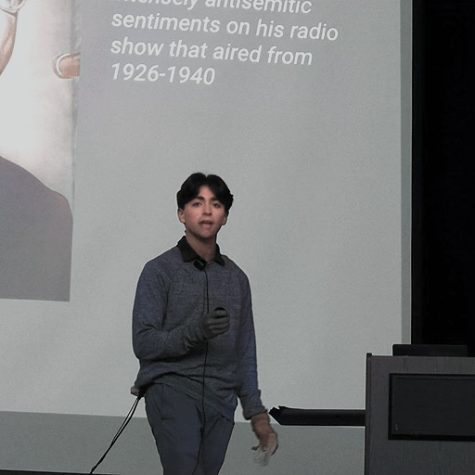
Lev Sugerman-Brozan (I) focused his Capstone project on Boston’s Jewish history, concluding his research with a six-episode podcast. The project “expanded [his] horizons by doing something more history[-based],” as opposed to his other STEM-focused classes. He chose his topic because it was personal to his own heritage, and “there isn’t really a [Jewish history] encyclopedia.” By compiling information throughout the year and conducting interviews with both his family members and specialists, Sugerman-Brozan painted a picture of Boston’s Jewish community. He was able to sit down with experts like Tufts University professor Sol Gittleman and Brandeis University professor Jonathan Sarna. At the conclusion of his presentation, he shared a call to action for Boston Latin School students and other podcast listeners to resist anti-semitism. Sugerman-Brozan comments on how much work is yet to be done in the community of Boston: “A lot of people think of anti-semitism as something that’s been solved, but that’s not the case.”



